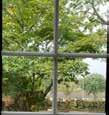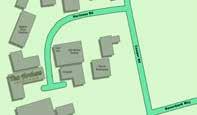




So, what has been going on? Well, sometimes you can’t see it! Sometimes to get local news you have buy it, even if you go online. Then in between reading things, you get prompts asking you to agree or disagree to certain ‘cookies’, and we are not talking butter or chocolate cookies! I know I have probably just lost hundreds of readers on that line, but some have lost a lot more.
When you log in, even whilst you are thinking about what you’re doing in making that connection, have you really prevented the host of that website from selling your phone number or your IP address to an agency? Then before you know it, you’re getting more advertising sent to your email or social media account. After looking at holidays, suddenly your emails and social media are full of holiday offers.
As a magazine in the hand, you shouldn’t be under any threat, unless as we have discovered someone has grabbed your copy and completed the word search before you! Technically if you’re not online, I’m sure someone could actually screenshot a copy direct from any issue of the Eden Local through our website, where all 190 copies are. It could be a story, a puzzle or anything that you’d like to share. You should in theory have this Eden Local by 5th March or before, as we move forward two weeks in our production, to return back to the regular 12 Eden Local magazines, one every month. To make it happen, next January’s edition (2024) will print December 6th this year! I have covered this in more detail on page 10, along with dates and timescales,
not just for the Eden Local but also for the other publications we are working on.
Always in search of good news, it’s true to say that newspapers, once relying on bad news to sell papers, generally have made the transition to have as much bad news as they can possibly get online, so they can sell as much advertising as they can around the article and in between it.
As for selling more newspapers, I was sad to hear that the traditional paper boys and girls operating in Kirkby Stephen will no longer be delivering papers as it is no longer economically viable. I never thought I would live to see the day when paper boys and girls were made redundant. On pages 14 and 16, I have been doing research on the decline in volunteers. It’s our second article under the heading, ‘connecting with the community’ and it covers in detail what our volunteers around us are doing, and what they do unnoticed. It’s possibly a reality check when you consider that so many of our volunteers are getting older, and there is quite a gap appearing in the resources they cover.
With almost one million in the system in the UK, that is about two-thirds the size of the NHS workforce. Many of their responsibilities and functions mean that too much of the public domain in surviving, hinged on what they do, and sadly there needs to be more people coming forward, especially from the younger generations, to sustain these needs.
One thing you can’t always see on the internet is honest feedback. Being the small magazine with the largest circulation in Penrith that continues to expand across Eden, we can honestly say it’s not just about selling adverts.


Across the years, I have had the occasional call asking me sometimes about advertisers, their products and their services, and so my answers are based on customer feedback I get on my customers who advertise.
I actually managed to source an update on the changes to the county, as by the time you read this you could be just three or four weeks away from the unitary changes to the County and District Councils on 1st April. As I see it, there is a lot that needs to be done, but due to process, it cannot be done until 1st April in a number of areas. I suppose as a business person, I could view this like a takeover of a company or another, amalgamating with another.

Putting my hat on as a former town and county councillor, however, I have deep concerns. The process of devolution started in 1997. Our local District Council fought against this change, like they fought against Penrith having a town council. They attempted to stop the changes, they delayed it, then they lost control. Like businesses merging, all staff from county and district will go into one organisation. Could this mean a doubling up of skills?
The next two years will tell, if we see council taxes rising, budgets being cut, increases in redundancies or salary costs not sustainable, people in the community will need to ask why. Personally in the past actually getting real answers has sometimes been an issue. If the District and the County has mismanaged this process for political gain and the community suffers as result we really do have a problem to resolve.
A key measure will be in how the unitary council interacts with the community it serves, and how it helps a new county and all of its businesses, organisations and of course, you and me to adapt to any changes. Let’s hope it’s a smooth transition. At present, it is no longer in our hands. Whilst much of our lives, meanwhile, revolves
around the boundaries we are in, including the walls of our homes, boundaries and borders can be fences, rivers, trees, walls, a post, a building, a lake or even the sea. For Eden FM Community radio, it celebrated an increase in its FM transmission recently, by Ofcom doubling its output on 107.5 FM and has none of the boundaries listed above. Before I go, I would like to say a big thank to all those who have contributed to this Eden Local. As we head into May, it’s a busy week. 1st May as we have the Lions’ 40th Carnival in Penrith. I am working on the May Day programme in between what I do, and we also have the local Parish elections on Thursday 4th May. This is followed by King Charles III’s Coronation on Saturday 6th May; the 40th Coronation to take place at Westminster Abbey, I’m told. That’s three events needing hundreds of voluntary hours locally.
Meanwhile, my desk is full, my head is also full, but I’ll be back as early as 8th March for when your April Eden Local starts delivery.

Take care out there.
Lee Phone: 01768 862394
Email: lee@cumbrianlocal.co.uk www.cumbrianlocal.co.uk


There are now less two months to go until the start of the new Westmorland and Furness Council on 1 April and a phenomenal amount of work has happened to get us to this point, a lot more remains to be done but we are on track.
Elections were held in May last year and we now have 65 councillors in place and a new Cabinet providing leadership for the new authority. We have appointed a Chief Executive, Sam Plum, and our chief legal and financial officers, and they began in post at Christmas. But for now, they are still the only staff employed by the council.
Staff from the three district councils and the county council will transfer to Westmorland and Furness Council on 1 April, creating a workforce of around 4000 people. Some of those staff have been supporting the new council to get ready, which has allowed us to produce a council plan which sets out our vision and priorities for the area, and other key documents like the council’s constitution.
The council plan shows we have big ambitions, but initially it is unlikely that the public will notice much difference in the council services they receive. Our priority at first will be ensuring the transition between old and new councils goes smoothly and services continue to operate well. After that we’ll be looking at how we can capitalise on the opportunities presented by becoming a unitary authority to transform and improve services. That’s not going to happen overnight, but we hope we’ll be able to make progress in some areas quite quickly.
Despite this being all consuming for us, we know that many local people are a little unsure about what is happening. Over the next few weeks, in the run up to 1 April, you will be seeing a lot more public communication from the council to raise awareness of what’s happening.
You can find out more about the council at:
• westmorlandandfurness.gov.uk
• facebook.com/WestmorlandFurnessCouncil
• twitter.com/WandFCouncil


Save energy and save money with Window Doctor by curing those window and door drafts in 2023!
The average home loses about 30 percent of its heat due to drafts.
Be safe and save money, are you ready for this Winter?
Reduce drafts and reduce your heating bill with some small changes and repairs now.
It can be a difficult time when a loved one passes away. The last thing that anyone wants is to have a dispute over their loved one’s estate. However, sometimes disputes are inevitable.
Disputes can arise for a number of reasons; these include arguments over the validity of the will – was it made whilst the deceased lacked capacity or were they unduly influenced? Maybe you have been left out of the will and think you should have been included? You may have concerns over whether the deceased properly understood and approved the will, maybe you believe it has been forged or perhaps there was a clerical error.
There may be no dispute over the validity of the will but rather you are concerned with how it is being dealt with and administered.
Here at Butterworths Solicitors, we have experts ready to lend a sympathetic and understanding ear to listen to you. We will sit down with you to understand the issues you face and offer resolutions.
Sarah Hitchen-Gibbon is a solicitor at Butterworths Solicitors with over 10 years’ experience in litigation, having qualified in 2016 as a solicitor advocate.
Sarah works across the firm’s offices in Cumbria and West Yorkshire and would be happy to discuss any issues you may be having. Please give her a call on 01768 868989.

Morgan Prescott, 28, from Temple Sowerby near Penrith, was due to join other amateur riders from across the UK to race thoroughbred horses on York racecourse, as part of Macmillan’s ‘Ride of Their Lives’. However, after completing six months of intense jockey training and fundraising before the prestigious event, on 15 May 2022 she had a fall on the gallops near Penrith.
‘It was a Sunday morning and we were on the gallops, the horse got keen and jumped out of the end of the gallops and then we both hit the floor. I couldn’t move my legs but could wiggly my toes so knew it could be much worse. It took just seven minutes for the critical care team from the Great North Air Ambulance Service (GNAAS) to fly from their base in Langwathby, Penrith to the scene of the incident. The paramedic Lee Salmon and the team had identified my collection of injuries within minutes of arriving on scene and within 30 minutes I was at The Cumberland Infirmary
where they confirmed the broken hip, bruised lung and kidney, sprained thumbs and shoulder damage. I have since visited GNAAS’ base in


Langwathby and met paramedic Lee Salmon before witnessing the team being called out to an incident. I am in complete awe of this team and the service they provide to our community! I am therefore holding a ‘Bonkers Bingo’ fundraising evening on 25 March at Holesfoot in Penrith all in aid of GNAAS with party Bingo, Charity Auctions, Raffles and many more surprises with the aim to fund a mission for the charity.’
Auction and Raffle donations will be gratefully received. To book tickets please call or text: 07769271863

07769271863

I’m currently going through the process of selling my own home. Despite working at an estate agency and being a Property Valuer myself, this hasn’t meant that I am exempt from the stress that comes with the home selling process.

No matter how perfect the house, the buyers, the chain, the estate agent, the solicitors, it isn’t always plain sailing.
Here’s my top three tips for selling your home:
1. Price it right: The most important factor in selling your home is its price. It’s essential to price it competitively, taking into account the current market conditions
and comparable sales in your area. A knowledgeable estate agent can provide you with a professional valuation and help you determine a fair asking price and manage expectations.
2. Prepare your home: Clean and declutter your home to make it appealing to potential buyers. Stage your home to show off its best features and create a warm and inviting atmosphere.
3. The power of marketing: Aim to make a lasting first impression with your property listing. Stunning professional photography can make your home stand out. Consider filming a video walkthrough
for advertising your property on social media to reach a wider audience.
With these tips in mind, you’ll be on your way to finding the right buyer and closing the deal on your home.

As someone in the community and a reader, getting your feedback is always important. Ideas shared are always good, just like problems. You’ll see two articles in this edition based purely on feedback. We like to use constructive feedback, and we leave negative feedback to the service providers in the Newspaper World! As it is free, you don’t really want negatives posted through your door. In some cases, facts aren’t always what you want to hear, but a better knowledge in understanding helps.
I’ve mentioned many, many, times that we do deliver to all accessible doors, safe doors and economically viable doors. Also mentioned in previous publications, there are so many properties now in the areas that are no longer accessible, and in rural areas, and even in towns and villages there many properties with very long drives that do not have a letter box at the end of the drive. These properties are not financially viable to deliver to.
At the time of print, to post a letter first class costs 95p, and a secondclass letter costs 68p. By 1st April this could rise again. From a delivery point of view, it costs the same for Royal Mail to deliver a letter first class to a terraced house in Castletown as a rural property up a 1-mile drive without a post box at the gate.
For businesses, charities and groups wishing to advertise in the Eden Local, it is a fine balance and budget that allows up to 13,000 properties to receive an Eden Local. You can estimate the cost of doing this, but also whilst a letter is a letter, a magazine is 32 pages, and the cost of printing it is equal to its delivery cost.



Unfortunately, as a small business, to sustain the business and keep up with the growth of new developments in the areas we cover, it’s not as simple as getting more advertising and adding more pages. During January, we reorganised a number of delivery routes - we have over 35 routes. Sadly, we have lost DEADLINES
Help deliver Eden Local Call 01768 862394
May Book by 22nd March
info@cumbrianlocal.co.uk
Jun Book by 19th April
Jul Book by 17th May
Aug Book by 13th June
Call 01768 862394
Continued on page 14
Food and Drink Market

Sunday 12th March - From 11am to 3pm
Come on down and try a fantastic array of delicious food and drink from a variety of suppliers across the region.
Free Entry
Mothers Day
Sunday 19th March
Treat your mum to one of our luxurious and indulgent spa treatments, or give her the gift of choice with a voucher for our hotel & spa.

Friday Night Live presents
Beatles For Sale

Friday 16th June - From 7.30pm to 11.30pm
Dance the night away with a live performance tribute act, Beatles For Sale. Includes a delicious two course meal. £49 per person.
Friday Night Live presents
George Michael Live
Friday 15th September - From 7.30pm to 11.30pm
Dance the night away with a live performance tribute act, George Michael Live. Includes a delicious two course meal. £42 per person.

To book call the Events Team on 01768 868111 or email events@northlakeshotel.co.uk
North Lakes Hotel & Spa
Ullswater Road, Penrith, Cumbria CA11 8QT 01768 868111 | northlakeshotel.co.uk | danielthwaites.co.uk
The Sun is the centre of our Solar system. Without this star the impact on our planet and all others would be dramatic and devastating to life as we know it. It is estimated that within one week the temperature on Earth would drop to 0°C (32°F) and within 12 months would be -101°C (- 150°F). The Earth would become an ice world perhaps with only limited basic life forms existing around geothermal vents. Without the Sun’s gravitational pull the planets of the solar system would drift into the void of space.

The Earth orbits the sun at 67,000 mph so if the Sun disappeared our planet would hurtle into space in a straight line at the same speed! Assuming it didn’t hit any other planets, asteroids or comets it would continue to travel through space. It could possibly get picked up into another star’s gravitational pull but no one really knows what would happen. So for the time being let’s just hope that the Sun’s enormous energy continues to provide the perfect temperature to ensure water remains liquid on earth and plants can continue to photosynthesise and its gravitational pull keeps us from flying into space and the unknown.
Equivalent size (if the Earth was the size of a cherry tomato!): A Giant Pumpkin
Equator circumference: 4,379,000 km (2,720,984 miles)
Radius /Diameter: 695,700 km (432,287 miles)/1,391,400 km (864,574 miles)
Made of: The star that we know as The Sun started as a cloud of dust and gas. As in the creation of all stars each particle in the cloud had a tiny gravitational pull. They were drawn together
getting increasingly heavy until it collapsed in on itself and its core heat increased. This process continued until it became hot enough to result in nuclear fusion. The force of this continuing reaction is held in place by the inward pressure of the star’s gravity and is relatively stable. So essentially our Sun is a ball of hydrogen, helium and plasma with a temperature of 15 million °C at its core.
Features: The Sun is currently a Yellow Dwarf and is considered to be a medium size star. Although it is not solid, it still rotates, taking about 27 earth days to turn on it axis. As the surface of the Sun is heated to around 5,500 °C some of the charged particles escape into space. This is called solar wind. When these particles hit the earth’s atmosphere auroras occur – The Northern Lights. Similarly solar flares from the surface can interfere with satellites, phones, satnav and televisions! The light from the sun takes about 8 minutes to reach earth.
Mythology: Around the world and in many ancient civilisations it was believed that The Sun was a God. As the Sun is needed to grow food and to sustain life this is not surprising. The Ancient Egyptians called their sun god Ra. The Greeks worshipped Helios, the Romans had Sol and the Celts revered Lugh. There are many more that you can learn about with a little research!
Next time we will look at the first of the planets of the Solar System – but can you remember the order?
By Pam WaggottReferences:
www.solarsystem.nasa.gov
www.funkidslive.com
www.nhm.ac.uk
www.businessinsider.com
Castlestead View is the perfect place to call home in Oxenholme.
Prices from £60,000 for a 25% share.*
Live independently in our modern, energy efficient scheme. You could move into your own one or two-bedroom apartment and have access to communal areas and on-site care - if needed.


Two-bedroom bungalows are also available for outright purchase. Register your interest by calling 01539 678 288 or emailing info.castlesteadview@housing21.org.uk

Castlestead View, Burton Road, Oxenholme, Kendal LA9 7FY
*T&Cs apply
housing21.org.uk
Continued from page 10
some villages in remote areas. Logistically we need local teams based in the villages to distribute for us, with more time spent on deliveries and less time driving and walking.
I have a big ask and a reminder for those with low level letter boxes and dogs…
Following a case in connection with Royal Mail workers, new rules state that dog owners could now be convicted and face a maximum five-year prison sentence. This applies to anyone who is delivering free newspapers, post, parcels or leaflets, the court has ruled.
Sadly, since 2013, more than 650 postal workers
have been attacked while posting mail through letterboxes (stats form 2020).
Based on historical cases, injuries from dogs have been awarded these amounts for specific injuriesminor hand injuries: up to £4,500; loss of part of a finger: up to £7,400; and serious hand injuries: up to £58,000. Unfortunately for the dogs, sadly the punishment can more severe.
To conclude, we do need help with deliveries, but as for Royal Mail, I have good friends who are posties. Many posties could be earning better money if they were spending less time driving and walking up long drives for the sake of a letter box at a gate. Meanwhile, the only way forward is having stamps that are so expensive, even Christmas cards and letters are no longer affordable, that bring so much happiness.
Apr - Eden Local - Book by 22nd Feb - Artwork by 2nd Mar - Delivery by 2nd Apr or before



Do you ever need support or advice with disciplinaries or grievances?
Would you benefit from support with managing absencessickness-related and other types?

Can performance issues be tricky to deal with?
Do you have current employment policies, procedures, and perhaps a staff handbook?
Have you issued employment contracts to all your staff?
Are you clued up when it comes to employment law that affects your business?
Could you benefit from support or advice with recruiting staff?
Have you thought about the pay and benefits you offer your staff?
Who can help you with situations like reorganisation and redundancy?
Would your managers benefit from some training or coaching on dealing with tricky situations?
What about equality, diversity and inclusion in your organisation?
Well, whatever you need, Quinn HR is on your doorstep based in Penrith and only a call or an email away! With experience of supporting a range of organisations across the private, public and voluntary sectors, we can advise on a range of employment matters and have access to additional, professional HR expertise should it be needed.
Quinn HR offers a professional, pragmatic and friendly service at an affordable price. You can opt for the pay as you go service or have peace of mind through the monthly retainer service that someone is only a call or email away. If you would like details of either option, please let me know.
A charter member of the CIPD (Chartered Institute of Personnel and Development) Quinn HR is a part of Perennial Process Ltd (Est 1994)
Where do you start with Healthcare Volunteer Work? Well, there are Friends Groups in hospitals, then there is the work that includes supporting the elderly, with an ageing population and many elderly people cut off from their communities, improving the lives of older generations, delivering meals, helping with shopping, and so on. Some considering employment in counselling choose to volunteer to get an idea and experience. Where would we be without the Samaritans?
A voluntary group can be a small organisation, a charity, a society, a not-for-profit organisation, a club or in some ways a team with a goal to achieve. Some come together weekly, some monthly, some quarterly and some once or twice a year.
Many of the larger charities have a paid CEO, directors, management team, paid staff, many of them essential to the organisation, which can include employed fundraisers and marketing people. But at ground level, a lot of the time the front line is volunteers.
To some, the Voluntary Sector is the Third Sector. To be honest, I’ve always viewed sectors as either private, public or voluntary.
We have Environmental Voluntary work which generally includes Conservation, Farm work, and Climate Change. There is Animal Voluntary work that includes Animal Rescue and Care, and Wildlife Conservation. Social Voluntary work includes teaching, working with children and youths.
Community Development Volunteering is defined usually as social groups of people working together towards a common goal to build a stronger community, and it can include skills across many voluntary sectors. It can be distributing food, shelter for the homeless and clothing and education. It could be welcoming migrants and refugees, supporting victims of domestic violence, or be people coming together during floods.
Then you have sports and leisure voluntary work, and at the top end you have major sporting events like the Olympics, Commonwealth Games, Regional marathons; then at a local level, you have grassroots sports clubs that are run entirely by dedicated volunteers. Closer to home, think of the marshals, the Lions, the Rotary, the agricultural show committees, and event organisers.
Other types of volunteering work include joining the board as a treasurer or secretary, helping to organise social events, refereeing, managing the equipment or player registrations.
The NCVO (The National Council for Voluntary Organisations) produces an Almanac as detailed on their website, but for those not online it explains:
The Almanac is the definitive publication on the state of the voluntary sector in the UK. It is used by the ONS, cited by the media and referenced by sector leaders, policy makers, journalists and academics. This year’s publication is primarily based on charity accounts for the financial year 2019/2020. This helps us to understand how prepared charities were going into the pandemic, the initial impact as the country went into the first lockdown, and what state they might be in going into the cost of living crisis.
From thier report in October 2022, I would like to share the following:
There are 165,758 voluntary organisations in the UK (2019/20), an increase on the previous year. The voluntary sector has a workforce which is almost
Continued on page 22

budget was a block paved drive too.
I would like to say thank you to Mrs H for taking the time out for me to ask the questions and share her experience.
The pictures are here which give you a good idea of the drive completed by James and his team at Lakeland Driveways Ltd, but what I can also confirm from the feedback is James was prompt. In fact James visited next day with a great range of samples when he met Mrs H. The quote was confirmed soon after and within about two weeks the team were on site.
A relatively new advertiser for Eden Local, but one that seems to have already picked up some good feedback and that I have also seen within walking distance of my Office.
It was fortunate for me that I actually saw one of the Lakeland Driveways taking shape as I kept driving past it twice a day, long before they actually signed up for advertising in the Eden Local. I

It was on that basis of actually seeing the job started and finished that I contacted James at Lakeland Driveways, and the need for inviting a service not covered in the magazine to consider trying it.
Some say seeing is believing, and if there is one thing, I see is that around Penrith and the areas I deliver to, we are not short of crumbling driveways. In fact I can’t event claim the credit from the lady I interviewed, Mrs R of Penruddock, because whilst I’m presenting her experience of having a new drive, firstly I can’t take credit for Mrs R seeing James’ business in the Eden Local, because it was as simple as seeing his van and taking down the number.
Mrs H did confirm that she searched online, but locally, a bit like myself really, and she called James.
The project was to replace a crumbling tarmac drive and find out if it was in the budget that Mrs H had. Importantly it was, but also within the


In fact, they started at 9:00am on 23rd January and the team were finished my 3:00pm the next day, 24th January. All completed from a call to a new drive in about 3 weeks.
Keep your eyes open! You might see James and the team near you soon!
Be Heard, Be a Penrith Town Councillor!
Now is an exciting time to become a Town Councillor for Penrith!

With Local Government Reorganisation in Cumbria just around the corner, Eden District Council and Cumbria County Council will be replaced by the new Westmorland & Furness Council, making Penrith Town Council even more important in representing the views of the local community to the new authority.
Penrith Town Council has responsibility for the well-being of your local community. Council work falls into three main categories:
• Delivery of services
• Improve quality of life for residents
• Give communities a democratic voice
Elections for positions at Penrith Town Council are taking place on Thursday 4 May. 15 councillors will be elected for the six wards in Penrith, and one of them could be you!
As a councillor, you can become a voice for your community and make the views of Penrith heard by the new Westmorland & Furness Council.
Here are 5 reasons why you should consider becoming a councillor:
1. You can make a difference to your local community and be involved in shaping its future.
2. You can represent the views of local people and make sure they count!
3. You can improve the quality of life and the environment of Penrith.
4. You can work to identify issues which are important to the lives of Penrith residents.
5. You can work to bring about improvements through local projects, lobbying other service providers and working in partnership with other organisations and authorities.
Almost anyone can become a councillor. You do not need any specific qualifications. Councillors come from all sorts of backgrounds and, if anything, life experience is the most important attribute you can bring to the role!
How much time will I need to volunteer for?
The National Association of Local Councils (NALC) Local Councillor Census Survey found that councillors put aside, on average, three hours a week for council work. This often includes attending meetings, engaging with residents and speaking on behalf of the council to other bodies. You can do as much as you wish to. We only have six meetings of full Council in a year, you don’t have to sit on a committee and missing the occasional one is acceptable. Meetings generally only take a couple of hours, but we’d love you to attend as much as you can.
There are only a few rules to stand for election. You must be:
• a British citizen, Commonwealth citizen, citizen of the Irish Republic or a citizen of another European Union State.
• 18 years of age or older, and
• on the register of electors for Penrith, lived in Penrith for the whole of the preceding twelve months, occupied land as owner or tenant, had a principal place of work in the parish boundary, or lived within 4.8 kilometres (or 3 miles) of it.
You cannot stand for election if you:
• are the subject of a bankruptcy restriction order or interim order.
• have, within 5 years before the day of the election, been convicted in the UK of any offence and have had a
prison sentence (whether suspended or not) for a period of over 3 months without the option of a fine.
• work for the council you want to become a councillor for.
You can choose to stand for election as an independent candidate or as a partypolitical candidate. Belonging to a political party is not necessary, however if you wish to represent a political party you will need to contact your local branch directly to discuss becoming a candidate.

Pop into the Council offices on Friargate to meet us and have a word about what the Town Council is doing and what the role entails. The offices are open 9am until 3pm Monday to Wednesday.
For more information about becoming a councillor and the nomination process please visit: www.eden.gov. uk/voting-and-elections/bea-councillor
February into March can have sunny crisp days amongst some of the gloom and it got me thinking about upsides instead of downsides, so here’s a few ideas.
I’ve seen lots of offers on salvias recently and there are plenty of upsides to planting these in your garden:



• There are loads to choose from and they are super bee-friendly.
• There’s a lovely colour and height range.
• Many are fully hardy whereas others are less so; check the plant label as here in Cumbria it can get pretty wet and cold!
• They fit into many garden styles from naturalistic through to more formal schemes.
• They generally like sun and a well-drained soil; choose larger leaved types for a partially shaded spot. Plant them in late spring so they have a growing season for roots to be established.
Favourites
• Salvia nemorosa ‘Caradonna’ – flowers from midsummer; great for naturalistic planting. Needs well drained soil and doesn’t like winter wet.
• Salvia ‘Amistad’ – tall and long flowering with a deep purple colour, good to grow in pots as it is half hardy.
• Salvia microphylla ‘Pink Lips’ – a bright two-tone flower of white and pink, great next to a purple leaved shrub; another half hardy one so think about protecting it in winter.
On a different “upside” clients ask me about vertical planting and it is a must to consider in designs not only to bring height interest but also to use potentially wasted areas. It’s a great opportunity to get more greenery into smaller spaces. Growing climbers on a fence is one obvious answer but other ways are:
• adding fence shelving or pouches
• erecting decorative trellis or wooden slats to disguise the fence
• building a pergola or arbour
• installing a living wall – complete kits are available, not necessarily the cheapest option but they create superb impact
• hanging baskets - these might be considered old hat but there are many creative ways to use hanging space for your plants
February into March tasks
Finally, there are some jobs to do outside now there are better weather days:
• Prune summer-flowering shrubs like buddleja and winter-flowering shrubs that have finished flowering.
• Take hardwood cuttings of plants like dogwoods, which are great for stem colour in winter.
• Visit gardens for winter inspiration!
Contact me to discuss your garden wish-list from complete designs to revamping a tired border.
© 2023 Karen Roberts Garden Design











CORONAVIRUS begat the lockdown
Which necessitated working from home
Government national and regional
Promptly withdrew from customer contact
Without supervision clerical drones
Were ever more loth to answer the calls
And when they did all the background noises
Made them impossible to comprehend
On TV or live kids and animals
Obscuring the accents of Mombasa
Or Chennai and sometimes Wolverhampton
So we knew not whether Whitehall functioned
Though a reasonable argument says
That the country will work all by itself
The preprogrammed systems will just roll on
Until the gaffes surface twenty years hence
Utilities are another matter
We depend on them for our well being
When you ring there are none in the office
And at home forty minutes to reply
Then you get a menu to interpret
Subdivisions to each option offered
After ending back at your starting point
There is always a helpful suggestion
You could have saved the time you just wasted
By logging in to the company’s site
Where you can track your order, pay your bills
Check the balance on accounts they have closed
Or chat to androgynous clones online
Herded like sheep to the WiFi meadow
Lacking broadband equipment and support
Save money for suppliers not buyers
If you’d stayed awake in the Sci Fi years
You would have known that LIFE IS JUST A SCREEN
a million strong (950,000 workers) - about twothirds the size of the NHS workforce - and has grown by more than a quarter (27%) in the past decade.
The sector’s total income in 2019/20 was £58.7bn. The sector spent 97% (£56.9bn) of its income, with most of the spending (71%) going towards delivering charitable activities. The remaining amount is spent on grants (15%, £8.8bn) and on fundraising activities (13%, £7.7bn). Compared to the previous year, the cost of charitable activities rose by 3%, while fundraising activities fell by 6% and grants rose by 13%.
Out of a total of 165,758 voluntary organisations in UK, the majority (80%) are small. However the number of charities with income below £100,000 are declining, and the overall number of newly-registered charities is also falling. For example, charity registrations were almost 6,000 in pre-pandemic 2019, compared to almost 4,000 in 2021.
Now, let’s leave you with some thoughts…
Sparing just one or two hours with a local voluntary group could make a huge difference to you community. As you know I am a volunteer working on this magazine, and I’m the Chair and a presenter at Eden FM radio station, which is a not-for-profit organisation that is run entirely by volunteers, 24 hours a day and 365 days of year, and we need more people.
As a station we are not alone, and that is why I found a few more hours to help the Penrith Lions, because like Eden FM and most of the voluntary groups in the Eden Valley, they all need more hands to help. Imagine if from the thousands of doors Eden Local reached, we found one hundred volunteers helping local groups for just two hours a week.
Imagine what impact 10,000 new, community hours would have on the place where we live over one year?
Rex di Noci
February 1st 2023
For all those volunteers out there, this is for you…
To be continued
Reference www.ncvo.org.uk
What did Mr P have to say?
Did they discuss the work and the timeframe before starting? - Yes
Did they turn up on time? - Yes
After a period of settling in as an advertiser, it was time to do what we generally do on a regular basis. Whilst we talk to our advertisers every month, just like our end users we hand out magazines to and post through doors, it is very important for us to know more about our advertisers. This isn’t always the case for print media, but for Eden Local as a community magazine, it’s important not just to talk to the advertiser, but also to meet their customers.
My thanks to Mr P of Penrith for inviting me around to see a recently completed project by John and the JSV roofing team. On this occasion, the proof had to be in the roof, but it wasn’t just the roof on a fair size bungalow that had to be fitted in Winter, because Mr P also needed a flat roof for the garage. Following a leak in the roof in the Autumn, it wasn’t really an option to wait until after Winter.
It was purely by chance, Mr P of Penrith told me, he had had a new roof using JSV

Roofing. It’s true to say I know MR P and locally thousands of people will also know him and possibly Mrs P!
On this occasion, Mr P informed me a few months after the work was complete and said in passing, I used that chap that advertises in the Eden Local to do my roof. For me it was a great opportunity.
What sort of questions do I ask? Well, one I don’t normally ask is how did you hear about the business you have used. On booking in a new advertiser, it’s part of what I now ask them to agree to for certain services.
Were they tidy? - Yes
Did they keep you informed as the work progressed? - Yes
Were there any extras not quoted for? - No
Did the job finish on time? - Yes
Did you run out of biscuits?! – Almost!
Is Mr P happy? Well, he seemed more than satisfied, and the proof was in both the roofs and also the new guttering.
Competitively-priced, quality roofing services in Penrith and across the Eden Valley and the North Lakes.

CALL 01768 838019 NOW
for your free, no-obligation quote!
www.jsvroofing.co.uk/penrith
 by Joseph Jackson
by Joseph Jackson
The construction of Brougham Castle started around 1217 to guard the crossing into Westmorland as the Scots had occupied Cumberland and Westmorland in 1216 to 1217. Cumbria was not a stranger to Scottish raids, but the beginning of the 13th century would see a great escalation in the conflict which would last for nearly 200 years.
The Scottish kings had for centuries made claim to the lands of Cumberland and Northumberland and while their claim to Northumberland carried little weight in law, their claim at the time to Cumberland was factual as it was indeed ruled by them until it was finally taken from them in 1091 by William II.
In 1237 an arrangement drawn up in York by the Papal Legate gave the manors of Penrith, Sowerby, Langwathby, Salkeld, Carlatton and Scotby to the Scottish King as long as he paid homage each year to King Henry III of England. However, the short peace was brought to an end with the death of both King Alexander III and the Maid of Norway (his only grandchild) in 1286.
In 1297 after his great victory at Stirling Bridge, William Wallace led a large raid on Cumberland and Westmorland. It was said that their progress could be marked by the smoke from the burning villages in the landscape. They unleashed every horror on the people of the two counties. Penrith and many villages were burned to the ground and many hundreds of people were killed.
The atrocities committed by the army of King Edward l and his unlawful occupation of Scotland raised fury in Wallace and the Scots. This fury was consequently unleased towards the people of Cumberland.
The wealthy merchants who lived on the west side of the river Eden in Appleby fled to the castle and watched as the poorer people living in Bongate were massacred and the town utterly destroyed.
After the English disaster at Bannockburn in 1314 the north was left almost totally defenceless and at the mercy of the Scots. In fact it is worth noting that outside the main cities and towns, the Crown never really regained full control of the north of England until 1746. The Scottish army under Bruce and his right-hand man, “Black Douglas’, raided the north with impunity. Penrith and Eden were attacked in 1314, 1315, and then
again, and most destructive raid in 1322. Prior to this, Penrith had become the main market town in Cumberland as it was set further away from the border than Carlisle. However, this only served to make it a prime target for the Scots. It is recorded that during the raid of 1322 the town of Penrith burned to the ground and many of the inhabitants were carried away by the Scots, never to be seen again.
The Scots returned to Penrith in 1345 and the town was again attacked and smoke rose from all the villages in the area. In 1348 Penrith was holding its annual fair when a force of 3000 Scots attacked. However, this time it was not just plunder they carried away with them as they were unaware a plague was also present in the town and the Scots subsequently carried that back with them into Scotland.
Penrith Castle at this time provided little shelter for the towns people as it consisted of no more than a tower. The castle was enlarged in 1399 to provide shelter for the towns people, making it one of the last stone castles to be built in England.

The evidence of Penrith’s violent past at the hand of the Scots can still be seen if you know where to look. After 1345 the town was designed for defence against attack. Passage ways called ‘yards’, which can still be seen in the town centre, were designed for people to retreat into and the entrance would be closed with a strong reinforced oak door. The passages to the yards were low and designed for only one person at a time to pass through so even if the raiders did break down the door, only one raider at a time could fit in the passage, giving the defenders inside an advantage over them.
The town also had an earthen rampart with timber walls surrounding it. This was used to deter the Scots from further attacks. Sadly, this has long since vanished under the expanding town. The last remaining trace of it used to be visible at Thaka, otherwise known as Thakhay Gate.
Another section of the town’s defences can be seen at Kemplay Bank. As one travels up or down Kemplay, you may notice the field banks to each side. Unfortunately, very recently, the western
bank has since been destroyed. The banks were originally engineered to have steep sloping sides and a flattened surface at the top. They would have been lined with a low timber wall to allow archers to cover the river crossing at Eamont Bridge and guard the southern approach to Penrith. Today the Scots visiting the town are much more welcome.


From the 13th to the early 17th century the border between England and Scotland was a lawless and turbulent area. Ravaged by frequent wars and invasions, the inhabitants had to adapt their way of life to survive. Without the protection of either the Scots or English crown, their allegiance was first and foremost to their family or “surname”. Their livelihood was the raiding or “reiving” of livestock from their neighbours, both across the border and within their own country.
Archibold Armstrong Beattie Bell Burns
Carleton Carlisle Carnaby Carrs Carruthers


Charlton Collingwood Crisp Crozier Cuthbert
Dacre Davison Dixon Dodd Douglas
Dunne Elliot Fenwick Forster Graham
Gray Hall Hedley Henderson Heron
Hetherington Hume Irvine/Irving Johnstone Kerr
Laidlaw Little Lowther Maxwell Milburn
Musgrove Nixon Noble Ogle Oliver
Potts Pringle Radcliffe Reade Ridley
Robson Routledge Rutherford Salkeld Scott
Selby Shaftoe Storey Simpson Tait
Taylor Trotter Turnbull Wake Watson
Wilson Woodrington Young
In an attempt to establish peace, codes of Border Laws were established and Wardens appointed to settle disputes in the six marches, or territories, three each side of the border. But often, the Wardens were themselves amongst the most notorious of reivers.
Even today, we have echoes of this way of life in our language, for example: bereaved – to have suffered a visit from the reivers, blackmail –
originally protection money, paid to the reivers to avoid a visit.
400 years later, the area is peaceful, but such a history should not be forgotten. The annual Hawick Reivers Festival commemorates this rich story, culture and tradition. While not seeking to glamorise what was undoubtedly a bloody and violent period in our history we aim to give visitors a taste of what life was like for ordinary folks in
16th century Hawick. The reivers were a hardy, independent, resourceful and resilient people - characteristics still evident in the modern day Borderer!


The festival has been held annually since 2003. It comprises a full weekend of activities, both in and outdoors, including re-enactments, concerts, lectures, drama, 16th century market an encampment and a torchlight procession and fireworks display.
We take pride in our key aims to “Explore, Explain, Experience”. With attractions to suit all ages, the events give the audience a unique opportunity to gain an understanding of life in this difficult and challenging period of our history.
The 2023 Festival will take place on 24th to 26th March and we look forward to welcoming family and local historians to this fascinating part of the world

Torchlight Parade
“The Hot Trod” and Fireworks display
Ghost Walks
16th Century Banquet & entertainment & much, much more...
The annual Hawick Reivers Festival commemorates the rich story, culture and tradition of the Border Reivers.. While not seeking to glamorise what was undoubtedly a bloody and violent period in our history we aim to give visitors a taste of what life was like for ordinary folks in 16th century Hawick. The Reivers were a hardy, independent, resourceful and resilient people - characteristics still evident in the modern day Borderer!
The festival, which is held annually, comprises a full weekend of activities, both in and outdoors, including reenactments, concerts, lectures, craft displays, drama, 16th century market and reivers encampment and a torchlight procession and fireworks display and offers something for all ages
We take pride in our key aims to “Explore, Explain, Experience”. , and give the audience a unique opportunity to gain an understanding of life in this difficult and challenging period of our history.
Cumbria Singers are performing Haydn’s ‘Creation’ in Carlisle Cathedral on 29th April, the 225th anniversary of its first performance. This work is one of Franz Joseph Haydn’s greatest achievements.

Born in Austria, to parents with no formal musical knowledge, Haydn (1732-1809) developed his musical talents despite his difficult and challenging childhood. After attending various ‘schools’, Haydn tried to earn a living by playing, composing and teaching. Through contacts provided by his pupils he gained social access to the nobility – the only people in the 18th century who could advance his career.
1766 was a turning point in Haydn’s musical development. He was appointed ‘Kapellmeister’ to the court of the Esterhazys. Prince Nikolaus, an extremely cultured man, was determined to expand the musical repertoire of his court. Haydn remained in his service until Nikolaus died in 1790, having by this time composed an extensive range of vocal and instrumental music.
At the 1791 Handel Festival in Westminster Abbey Haydn was deeply impressed by The Messiah and Israel in Egypt. He expressed a desire to compose a work on a similarly exalted biblical theme that would appeal to a broad public. In 1795, before he left England, the impresario and violinist Johann Peter Salomon handed him a libretto, in English, on the subject of The Creation. Haydn was excited by the musical possibilities of the theme and worked unstintingly on composing the oratorio for eighteen months. He recalled in later years:
“I was never so devout as when I was at work on The Creation; I fell on my knees each day and begged God to give me the strength to finish the work....I spent much time over it because I

The 1798 Vienna premiere of the work (on 29th April), which was for a select private audience, created much excitement. Its official premiere was performed the following day. Haydn had achieved, by now, ‘rock-star’ status in both Austria and England and the streets outside the Schwarzenberg Palace filled with curious spectators. It took thirty police officers to contain them.
Haydn, who conducted both performances, was as overwhelmed as his listeners. His first biographer, Georg Griesinger, reported that the composer ‘could not describe the feelings with which he was filled when the performance went just the way he wished, and the public listened in total silence. “Sometimes my whole body was ice-cold,” he admitted, “Sometimes a burning heat overcame me, and more than once I was afraid I would suddenly have a stroke.”’
The Creation became a regular feature of the Viennese musical scene and within a few years it was being performed throughout Europe. Replying to a letter expressing admiration for The Creation, Haydn wrote in 1802 that ‘Often, when I was struggling with all kinds of obstacles... a secret voice whispered to me: “There are so few happy and contented people in this world; sorrow and grief follow them everywhere; perhaps your labour will become a source from which the careworn... will for a while derive peace and refreshment.”
Over two centuries later, the work remains enormously popular, thanks to its abundance of hummable melodies, pictorial text-setting, and the irrepressible cheer which is so desperately needed to help us through our own careworn times.
Invites you to the 225th Anniversary performance of


At Carlisle Cathedral
On Saturday 29th April 2023 At 7.30.p.m
Conductor: Andrew Padmore
Sarah power – soprano Austin Gunn – tenor Jamie W. Hall – bass Ed Taylor – Organ
The British Sinfonietta Orchestra
Tickets : Adults £20 / £15 • students £12 • children under 12 free. Available from : Beckside Books, Penrith. Carlisle Cathedral Gift Shop; Carlisle Tourist Information Centre (Tel: 01228 598596)
• Handstripping
•
Online: TicketSource www.ticketsource.co.uk/cumbriasingers.org.uk (a small booking fee applies). Subject to availability, tickets can also be purchased at the door. Visit

•
•
•
•
•
•
When you think of a mole, the image that comes to mind may be the timid, waist coated character in Kenneth Grahame’s The Wind in the Willow. Or you may view them as a garden pest that leaves mounds of earth on your lawn. What else do we know about these small creatures?


We rarely see moles in their natural habitat as they spend all their time underground. Yet, despite this, most people know what they look like. They are around 15cm long, although made slightly longer by their short tail. They are stocky, with wedge-like bodies which are covered with black velvety fur that helps them to move easily through soil. They have tiny eyes and a long pink nose. The downward position of their nose and mouth naturally protects them from debris as they tunnel. And probably most distinctively, they have large spade-like paws, perfect for digging.
Moles live around 3-4 years and are solitary creatures for most of the year, occupying exclusive territories until mating season. Their territories consist of complex systems of deep burrows, forming networks of tunnels often hundreds of metres long. They can dig up to 20 metres of tunnel per day, an impressive 133 times their body length.

Although seen as a pest, the common mole provides a good service: as they dig through the soil they aerate it, making it healthier. This in turn allows more plants to grow, feeding more insects and benefiting everything higher up the food chain. Also, tunnelling improves soil drainage, helping to stop flooding and the formation of large puddles.
A mole’s favourite meal is juicy earthworms but they also eat other underground grubs. These grubs often feed on crops and by predating them, moles offer a form of pest control, helping to keep unwanted visitors at bay. Their main predators are tawny owls and buzzards, as well as the additional threat from cats, dogs and humans. And even though molehills aren’t an attractive feature, I am always heartened to see them – knowing that one of our native species is living just under our feet!
Moles are widespread and common in Cumbria. They are


found wherever the soil is deep enough to construct their tunnels and can even occur up to 600m up on the Pennine hills, where suitable soils conditions are found in the limestone grassland. However, tarmacking and increasing numbers of hard surfaced gardens mean that moles are being pushed out of their natural habitats.
Let’s learn to live alongside
this small mammal, despite the nuisance it causes – why not help ‘green up the grey’ by making your garden a home for wildlife? For ideas go to https:// www.cumbriawildlifetrust. org.uk/wildlife/help-wildlife/ wildlife-gardening
Katie Douglass
Did you know:
In medieval times the mole was called a moldewarp, meaning earth thrower. You may remember that's the name of the mole in the classic children’s book The Tales of Little Grey Rabbit by Alison Uttley.
Moles are closely related to hedgehogs and shrews. Some small mammals, like moles and shrews, can shrink themselves during cold weather! The process, called Dehnel's phenomenon, sees them shrinking their bones and organs to become up to 11% smaller. Scientists think they do this to save energy, which helps them to endure the cold and gives them a better chance of survival.













